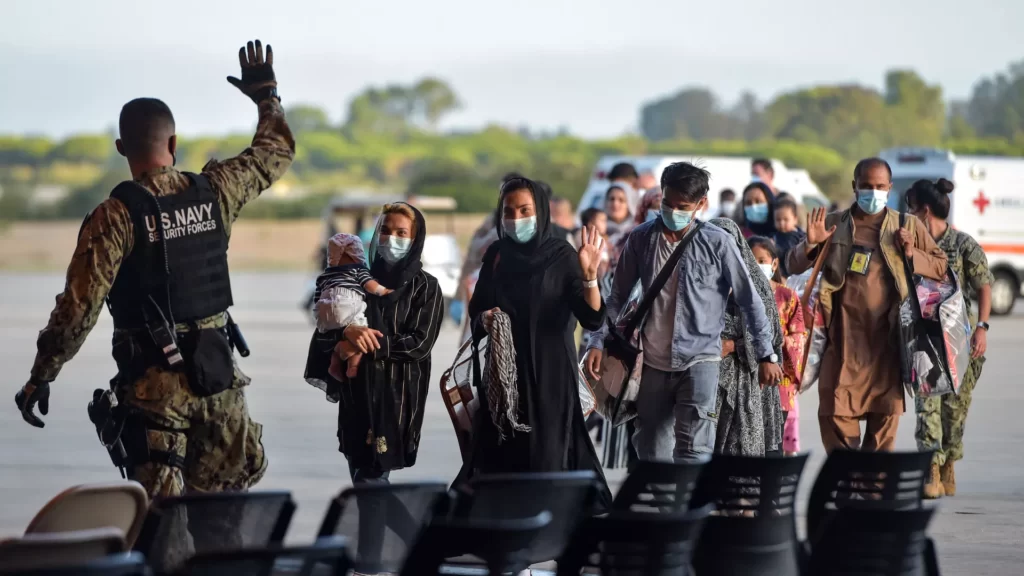The Biden administration is developing a portal to facilitate and simplify the reunification of Afghans with family members left behind in their Taliban-controlled country, three people familiar with the matter tell Axios.
Why it matters: The portal would centralize what has been a piecemeal, case-by-case effort to reunify the thousands of Afghan families separated during the chaos that ensued after the U.S. withdrawal from Afghanistan a year ago.
What we’re watching: Currently, family reunifications are typically initiated by family members via email with the help of nonprofit groups and State Department liaisons who collect and verify documents individually.
- Once launched, the State Department-run portal would become a central location where family members could upload information through a streamlined process.
- The user will enter their own status on the website, which will then instruct the user to fill out the right form to enable their relative to access the pipeline for entry into the U.S., one administration official told Axios.
- The Biden administration is also considering waiving the $535 fee associated with filing an I-130 form, which allows a U.S. citizen to petition for a relative to come into the country.
The big picture: Thousands of Afghan families were separated in the race to escape the country’s collapse following the Taliban’s seizure of Kabul. While many were evacuated to the U.S. and other countries, tens of thousands more were left behind.
- Immediate family members of Afghans relocated to the U.S. through the resettlement effort known as Operation Allies Welcome are being strongly considered for parole, according to a DHS spokesperson.
- Immediate family of U.S. citizens, lawful permanent residents, former locally employed staff members in Embassy Kabul and some approved Special Immigrant Visa (SIV) applicants are also favored for parole.
By the numbers: The Biden administration has brought more than 81,000 Afghans to the U.S. over the past year.
- There are 74,000 Afghans at various stages of the SIV application process — most of whom are still in Afghanistan. There are also 40,000 Afghans still in their home country waiting for an answer to their request for humanitarian parole.
- Of the 1,400 Afghan children who arrived in the U.S. without their parents, more than 1,200 have been placed with a sponsor or close family member.
What they’re saying: “AfghanEvac has been advocating for the family reunification portal,” Shawn VanDiver, founder of the AfghanEvac Coalition, which represents over 200 organizations, told Axios. “We haven’t met resistance on it. We really want to see any fees associated with reunification be waived. It should cost Afghans nothing to have their family reunified.”

Source:axios.com

